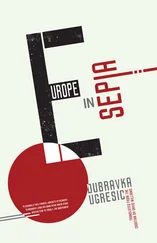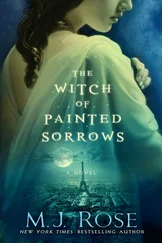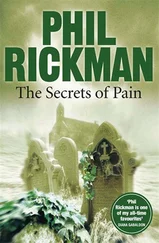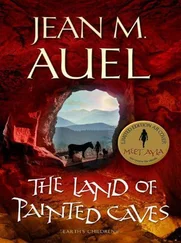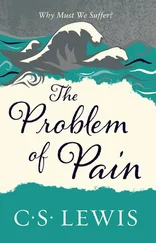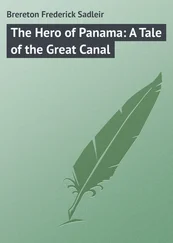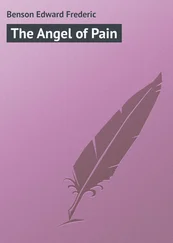It was with a certain diffidence that I’d proposed it as a class project — or game, really: a catalog of everyday life in Yugoslavia. Ana was the first to contribute. She brought her composition about the “Gypsy bag” to the very next class. I then suggested that we use her virtual Gypsy bag to store all the items for our “Yugonostalgic” museum.
“What museum?” they asked.
“Oh, it will be virtual, too. Everything you remember and consider important. The country is no more. Why not salvage what you don’t want to forget?”
“I remember the rally they held on Tito’s birthday,” said Boban. “We watched it every year on TV.”
“But we all remember that, man,” said Meliha. “Give us something personal.”
“My first bike. One of those squat ones we called ‘ponies,’ said Mario. “Does that count?”
“You bet!”
“Just like a man: a phallic symbol,” said Meliha in jest. “What about food? Bureks and baklava.”
“Bureks, baklava, and poppy-seed noodles.”
They all perked up at the reference to Balaševi  s song.
s song.
“If noodles count, anything counts,” said Nevena.
“Anything that makes you happy,” I said.
“Or sad?” asked Selim, his eyes lowering.
“Or sad,” I said. “Why not.”
“What about Omarska?”
The room was suddenly still. I flinched.
“Do you want to talk about it, Selim?”
“What’s there to say? It’s the only virtual exhibit I’ve got. The Serbs slit my dad’s throat there.”
Selim had tossed in another of his mines. I can’t say I didn’t expect it: I’d been picking my way through a minefield from the start. We all had our war memories, and losses like Selim’s were immeasurable. Selim and Meliha had experienced the war firsthand and in all its intensity. Uroš and Nevena refused to talk about it though they, too, were from Bosnia. Mario, Boban, and Igor had left the country to avoid mobilization and seemed thus to have avoided the virus of nationalist insanity — Boban Serbian nationalism, Mario and Igor the Croatian variant. Johanneke had followed the events from Holland. Ana, who arrived in Amsterdam with her Dutch husband before the war, had kept up with it in the Croatian, Serbian, and Dutch media, but made periodic trips not only to Belgrade but to Zagreb, where she had close relatives. Compared with theirs, my experience of the war was infinitesimal.
I realized I would have to find some common ground, because they differed in more than their war experiences; they differed in their interests. While Meliha had a degree in Yugoslav literature from Sarajevo, Uroš had only a provincial Bosnian secondary education and was just now entering the university. Mario had been studying sociology at Zagreb University. Ana had enrolled in the English Department at Belgrade University, but dropped out almost immediately. Nevena had done two years of economics. Ante had graduated from the teachers’ training college at Osijek. Boban had made it through the second year of law school. Darko had graduated in hotel administration at Opatija. Selim had just enrolled in the Sarajevo Mathematics Department when the war broke out. As for Igor, he was something of a drifter: he once mentioned having done some psychology, but also told me he’d spent two years at the Zagreb Academy of Theater and Film in the program for theater directors. I never pushed him about his past; it didn’t seem that important anymore.
As for the common ground, I could sense their inner fragmentation, their rage, their stifled protest. We had all of us been violated in one way or another. The list of things we had been deprived of was long and gruesome: we had been deprived of the country we had been born in and the right to a normal life; we had been deprived of our language; we had experienced humiliation, fear, and helplessness; we had learned what it means to be reduced to a number, a blood group, a pack. Some — Selim, for instance — had lost close friends and relatives. Their lot was the hardest to bear. And now we were all in one way or another convalescents.
Amidst such lunacy I had to find a territory that belonged equally to us all and would hurt us all as little as possible. And the only thing that could be, I thought, was our common past. Because another thing we all had been deprived of was our right to remember. With the disappearance of the country came the feeling that the life lived in it must be erased. The politicians who came to power were not satisfied with power alone; they wanted their new countries to be populated by zombies, people with no memory. They pilloried their Yugoslav past and encouraged people to renounce their former lives and forget them. Literature, movies, pop music, jokes, television, newspapers, consumer goods, languages, people — we were supposed to forget them all. A lot of it ended up at the dump in the form of film stock and photographs, books and manuals, documents and monuments—“Yugonostalgia,” the remembrance of life in that ex-country, became another name for political subversion.
The breakup of the country, the war, the repression of memory, the “phantom limb syndrome,” the general schizophrenia, and then exile — these, I was certain, were the reasons for my students’ emotional and linguistic problems. We were all in chaos. None of us was sure who or what we were, to say nothing of who or what we wanted to be. At home my students resented being typecast as Yugonostalgiacs, that is, dinosaurs, but they felt little affinity with the prepacked retrofuture of the newly minted states. And here in Holland they were stigmatized as “the beneficiaries of political asylum,” “refugees,” or “foreigners,” as “children of post-Communism,” “the fallout of Balkanization,” or “savages.” The country we came from was our common trauma.
I realized I was walking a tightrope: stimulating the memory was as much a manipulation of the past as banning it. The authorities in our former country had pressed the delete button, I the restore button; they were erasing the Yugoslav past, blaming Yugoslavia for every misfortune, including the war, I reviving that past in the form of the everyday minutiae that had made up our lives, operating a volunteer lost-and-found service, if you will. And even though they were manipulating millions of people and I only these few, we were both obfuscating reality. I wondered whether by evoking endearing images of a common past I wouldn’t obscure the bloody images of the recent war, whether by reminding them of how Kiki sweets tasted I wouldn’t obliterate the case of the Belgrade boy stabbed to death by his coevals just because he was an Albanian, whether by urging them to “reflect on” Mirko and Slavko, the Yugopartisans of the popular comic strip, I wouldn’t be postponing their confrontation with the countless episodes of sadism perpetrated by Yugowarriors, drunk and crazed with momentary power, against their compatriots; or whether by calling up the popular refrain That’s what happens, my fair maiden, once you’ve known a Bosnian’s kiss I wouldn’t be dulling the impact of the countless deaths in Bosnia, that of Selim’s father, for instance. The lists of atrocities knew no end, and here I was, pushing them into the background with cheery catalogs of everyday trifles that no longer even existed.
On the other hand, it was all intertwined; you couldn’t have one without the other. Death chewed on Kikis. People killed and were killed, looted and were looted, raped and were raped to the sound of cheap, popular refrains. Soldiers were hit by bullets as they dragged color TVs, the new booty, to the trenches. Death went hand in hand with day-to-day detritus. A detail like Kikis could recur in an infinite number of variations — the image, say, of a girl hit by a sniper, the blood trickling from her lips sweetened by the Kiki she had been chewing. The evil was as banal as the everyday artifact and had no special status.
Читать дальше
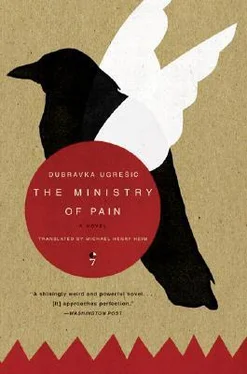
 s song.
s song.
